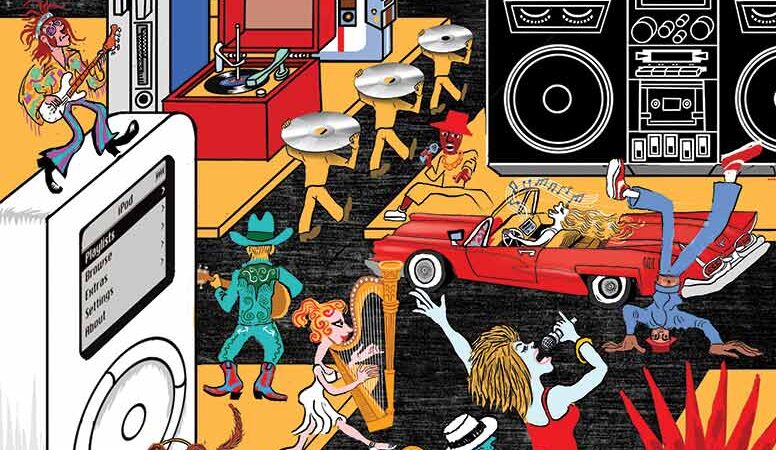This business of music.

The music industry is dead. Long live the music industry. Unless you’ve been asleep or uninterested the past ten years you have to have noticed a major change in how you purchase music. Ten years ago I was an avid music collector who spent hours combing my way through record shops. Today, 90% of my purchases are done online, either purchasing audio files or CD’s through one of the many music outlets on the web. Additionally, 10 years ago, I was in a band that was signed and trying our best to get the word out about our music using both the new and old fashioned way, new was utilizing a website, a message board and email list. Old was playing shows, touring and talking to people one on one. Today we get the word out using MySpace, Facebook and Reverbnation profile pages that get traffic from people all over the world, we utilize our twitter account to keep our friends and fans updated to the minute, we use iTunes, Amazon, BandCamp and a host of other platforms to distribute our music (which we recorded ourselves on our computers), and we still play shows once or twice a month. What is missing from the equation for me as a musician between how I did it 10 years ago and now is the presence of a record company.
Don’t get me wrong, I’m not one of those people that say record companies are dead and/or completely unnecessary in this day and age. No, what I’m saying is that I as a musician now have way more options to get my music heard (and potentially earn some money while I’m at it) than I did 10 years ago and all without needing a record label. You see, before, record companies held all the cards in determining what was going to be released and when, and they also dictated the medium in which you would experience music. Now anyone can get a computer and become their own record company and handle their own distribution. But while this empowers us as musicians, it also opens the door for alot of bad music to get distributed as well, so it’s a double edged sword. I can get my music to most of the world, but so can every Tom, Dick and Harry, so music consumers are forced to swim through an ocean of bad music to find one decent pearl.
So where does this put the record companies? Well they’ve been extremely slow to recognize the changing tide and it has hurt them where they hurt most, their wallets. Their strategy in dealing with the digital age has been to prosecute people who download music illegally as opposed to changing their business models to meet their sales goals, the needs of the consumer and keep up with the times. How long did it take them to finally begin cutting deals with online radio such as Pandora or Last.fm? Their first response was to try and shut them down, before they realized this thing called the internet was not going away.
I think there is still a place for record companies in the new age, but not in the same way they have been working for many years. We still need entities with long distribution reaches, with capital to manufacture and market product, and to organize a business around an artist or a band. We still need the historical knowledge of the industry, just without the head in the sand approach to change, and I think record companies, particularly the big major labels have finally realized that their practices need to change in order for them to survive. I guess all it took was a little thing called iTunes to show them what the potential was. As of late last year, iTunes accounted for 25% of total music industry sales and is the largest music retailer in the world, surpassing Wal-Mart, and they take 30% of whatever they sell. That’s big numbers and it will only get bigger. And that can only be good for those of us out here trying to do things on our own, without a record company’s support, but with our own computers, and our own dreams.



